 6 citations,
March 2022 in “Frontiers in drug discovery”
6 citations,
March 2022 in “Frontiers in drug discovery” Some small molecule antivirals show promise against COVID-19, but more research is needed to understand and improve them.
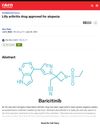 June 2022 in “C&EN global enterprise”
June 2022 in “C&EN global enterprise” The drug Olumiant is now approved to treat severe hair loss from alopecia and can also be used for some hospitalized COVID-19 patients.
 November 2015 in “Clin-Alert”
November 2015 in “Clin-Alert” Some medications and supplements can cause serious side effects, including hair loss, heart rhythm problems, liver injury, and other health issues.
 July 2021 in “Clinical Medicine”
July 2021 in “Clinical Medicine” The authors agree they didn't follow the original criteria strictly but found the Ottawa rule effective in all tested patients and suggest it might have wider use.
 September 2012 in “Emergency medicine news”
September 2012 in “Emergency medicine news” Manuka honey is effective for treating wounds and burns.
 September 2023 in “Translational medicine reports”
September 2023 in “Translational medicine reports” Minoxidil ingestion can raise liver enzyme levels.
 July 2023 in “The Journal of Family Practice”
July 2023 in “The Journal of Family Practice” The man was diagnosed with lupus and improved with treatment.
 21 citations,
January 2021 in “Therapeutic Advances in Endocrinology and Metabolism”
21 citations,
January 2021 in “Therapeutic Advances in Endocrinology and Metabolism” Testosterone may have a dual role in COVID-19, potentially worsening outcomes in men, and testosterone therapy could help some patients, but more research is needed.
 5 citations,
October 2020 in “Journal of radiation research”
5 citations,
October 2020 in “Journal of radiation research” Vesicles from irradiated mouse cheek skin help cells survive radiation.
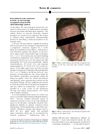 2 citations,
November 2018 in “JAAD case reports”
2 citations,
November 2018 in “JAAD case reports” Drinking kava tea can cause a skin reaction with red, swollen bumps, which may improve with steroids.
 December 2023 in “Curēus”
December 2023 in “Curēus” COVID-19 vaccination does not significantly increase the risk of developing alopecia areata.
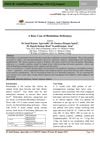 August 2021 in “Journal of medical science and clinical research”
August 2021 in “Journal of medical science and clinical research” An infant with seizures and hair loss was diagnosed with biotinidase deficiency and treated successfully with biotin.
 19 citations,
December 2016 in “PLOS ONE”
19 citations,
December 2016 in “PLOS ONE” Early-stage skin cells help regenerate hair follicles, with proteins SDF1, MMP3, biglycan, and LTBP1 playing key roles.
 9 citations,
May 2021 in “Dermatologic Therapy”
9 citations,
May 2021 in “Dermatologic Therapy” Possible link between androgens and COVID-19 severity; more research needed.
 9 citations,
March 1968 in “The BMJ”
9 citations,
March 1968 in “The BMJ” A woman's severe skin reaction was caused by an allergy to a skin treatment.
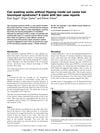 8 citations,
June 2016 in “Journal of Pediatric Orthopaedics B”
8 citations,
June 2016 in “Journal of Pediatric Orthopaedics B” Washing baby socks without flipping them inside out may increase the risk of Hair Tourniquet Syndrome.
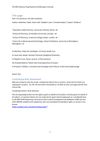 2 citations,
February 2022 in “BMJ”
2 citations,
February 2022 in “BMJ” Emollients can make fabrics more flammable, so take safety precautions.
 1 citations,
August 2005 in “British Journal of Dermatology”
1 citations,
August 2005 in “British Journal of Dermatology” Accidentally eating a topical steroid may rarely cause acute generalized pustular psoriasis.

Early diagnosis and treatment of hereditary vitamin D-resistant rickets (HVDRR) are crucial to prevent growth issues and other health problems.

Stopping minoxidil and draining fluid around the heart can save lives in rare cases.
 November 2022 in “Journal of the Endocrine Society”
November 2022 in “Journal of the Endocrine Society” A boy with a new NR5A1 gene mutation has a sex development disorder without affecting his adrenal glands.
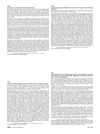 May 2015 in “Journal of The American Academy of Dermatology”
May 2015 in “Journal of The American Academy of Dermatology” A woman with Parry-Romberg syndrome developed new curly hair on one side of her scalp, a condition not previously linked to the syndrome.
 363 citations,
May 2006 in “Current Opinion in Psychiatry”
363 citations,
May 2006 in “Current Opinion in Psychiatry” Anorexia and bulimia lead to serious health problems and increased risk of death, requiring aggressive treatment.
 295 citations,
September 2006 in “Cell Cycle”
295 citations,
September 2006 in “Cell Cycle” The conclusion is that using drugs to block the TOR pathway might slow aging and prevent age-related diseases.
 271 citations,
June 2013 in “Human Reproduction”
271 citations,
June 2013 in “Human Reproduction” PCOS is common among Chinese women of reproductive age and linked to serious metabolic and reproductive issues, especially in obese women.
 251 citations,
October 2014 in “The Journal of Clinical Endocrinology & Metabolism”
251 citations,
October 2014 in “The Journal of Clinical Endocrinology & Metabolism” The guidelines advise against using testosterone and DHEA in women for most conditions due to safety and effectiveness concerns, but suggest considering testosterone for postmenopausal women with low sexual desire.
 183 citations,
January 2018 in “Cosmetics”
183 citations,
January 2018 in “Cosmetics” Essential oils in cosmetics can offer benefits but may cause allergies and should be used carefully.
 123 citations,
December 2015 in “Journal of Neuroendocrinology”
123 citations,
December 2015 in “Journal of Neuroendocrinology” New targets for making and using brain-synthesized steroids could lead to better treatments for brain disorders and alcoholism.
 121 citations,
November 2020 in “Endocrine”
121 citations,
November 2020 in “Endocrine” Male hormones like testosterone may make COVID-19 worse, and testing for sensitivity to these hormones could help predict how severe a patient's symptoms might be. Treatments that reduce these hormones are being explored.
 84 citations,
March 2010 in “Infectious Disease Clinics of North America”
84 citations,
March 2010 in “Infectious Disease Clinics of North America” The document concludes that rapid identification, isolation, and strict infection control are crucial to manage SARS outbreaks.






























